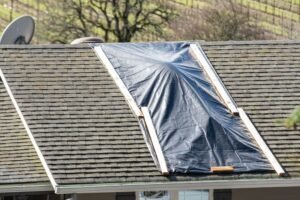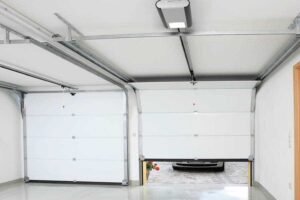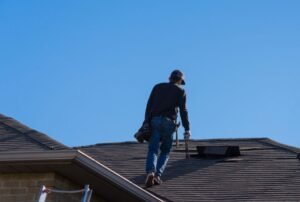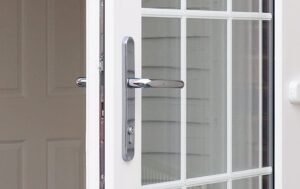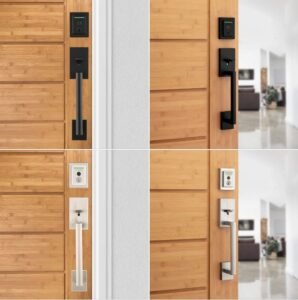Roofing Sheet Metal: A Comprehensive Guide to Installation and Benefits
Roofing sheet metal is a popular choice for residential and commercial roofs due to its durability, longevity, and aesthetic appeal. In this guide, we will walk you through the entire process of using roofing sheet metal, its advantages, disadvantages, price differences, manufacturing, leading brands in the United States, warranties, installation techniques, drawbacks and benefits, duration of the process, as well as inspections and permits based on city requirements.
How and Where to Use Roofing Sheet Metal:
Roofing sheet metal is versatile and can be used on various types of roofs, including residential homes, commercial buildings, warehouses, and industrial structures. It is commonly used for flat or low-slope roofs but can also be applied to steep-slope roofs. Sheet metal roofing is suitable for both new constructions and roof replacement projects.
Advantages of Roofing Sheet Metal:
Durability: Sheet metal roofs can last for 50 years or more with proper maintenance.
Weather Resistance: Metal roofing can withstand harsh weather conditions, including heavy rain, snow, hail, and strong winds.
Fire Resistance: Metal is non-combustible, making it a safer option and potentially reducing insurance costs.
Energy Efficiency: Metal roofs reflect sunlight, reducing heat absorption and keeping the building cooler, resulting in lower energy costs.
Low Maintenance: Sheet metal requires minimal maintenance, typically limited to occasional cleaning and inspections.
Disadvantages of Roofing Sheet Metal:
Cost: The initial cost of installing a metal roof can be higher compared to other roofing materials. However, its long-term durability often offsets the higher upfront expense.
Noise: In rain or hail, metal roofs can be louder compared to other materials. Adequate insulation and underlayment can minimize this issue.
Denting: While metal roofs are generally resilient, they can dent under heavy impact, such as falling branches or hail. However, most modern metal roofing systems are designed to resist denting.
Expansion and Contraction: Metal expands and contracts with temperature fluctuations, which can cause noise and potentially lead to the loosening of fasteners. Proper installation techniques account for these movements.
Price Differences:
The price of roofing sheet metal can vary based on factors such as the type of metal (galvanized steel, aluminum, copper), thickness, and region. Additionally, the complexity of the roof design and installation process can influence the overall cost. It is recommended to obtain quotes from multiple contractors to determine the specific price range for your project.
Sheet Metal Manufacturing and Leading Brands in the United States:
Roofing sheet metal is typically manufactured by specialized companies that produce metal roofing products. Some of the largest brands in the United States include ABC Supply Co., Inc., McElroy Metal, Englert Inc., Metal Sales Manufacturing Corporation, and Petersen Aluminum Corporation.
Warranty Information:
Warranties for roofing sheet metal can vary between manufacturers. They typically cover defects in materials or workmanship and can range from 25 to 50 years, providing peace of mind and protection for the investment in your roof. It is important to review the specific warranty terms and conditions provided by the manufacturer.
Installation Techniques:
Installation of roofing sheet metal requires skilled professionals experienced in working with metal roofs. The process involves several steps, including roof preparation, installation of underlayment, laying the metal panels or sheets, fastening them securely, and sealing any penetrations or joints. Installation techniques may differ from traditional roofing methods, and it is essential to hire a contractor knowledgeable in metal roofing systems.
Drawbacks and Benefits of Installation:
Drawbacks:
Noise: Metal roofs can be noisier during rain or hail compared to other roofing materials.
Cost: The initial cost may be higher compared to some other roofing options.
Benefits:
Longevity: Metal roofs have a long lifespan, reducing the need for frequent replacements.
Durability: Metal roofs can withstand severe weather conditions, minimizing potential damage.
Energy Efficiency: The reflective properties of metal roofing can contribute to energy savings.
Aesthetics: Sheet metal roofs offer a sleek and modern appearance and are available in various colors and styles.
Environmental Sustainability: Metal roofs are often made from recycled materials and can be recycled at the end of their lifespan.
Duration of the Process:
The duration of the roofing sheet metal installation process depends on factors such as the size of the roof, complexity of the design, and weather conditions. A professional contractor can provide an estimated timeline based on these variables. It is important to note that metal roof installations can often be completed more quickly compared to certain other roofing materials.
Inspections and Permits:
Before installing a metal roof, it is important to check local building codes and regulations regarding permits and inspections. The specific requirements can vary based on the city or municipality. A reputable contractor will be familiar with these regulations and guide you through the process to ensure compliance.

